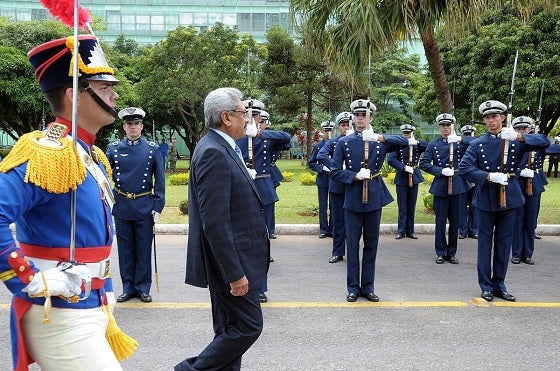Sri Lanka’s Presidential Election 2019: A Chinese Perspective on its Impact on China-Sri Lanka Relations
Ren Yuanzhe
3 December 2019Summary
Following his election victory, much is expected of the new Sri Lankan president, Gotabaya Rajapaksa. While domestic issues will feature significantly on his reform agenda, his foreign policy orientation, particularly Colombo’s relations with Beijing, will also come under close scrutiny. This paper examines Sri Lanka-China ties.
Introduction
In the recent Sri Lankan presidential election, Gotabaya Rajapaksa from the Sri Lanka Podujana Peramuna party won 52.3 per cent of the votes to become the eighth president of the island state. His victory was largely due to the Sinhalese majority, most of whom are Buddhists. The minority Tamil Hindus and Muslims voted mainly for his opponent, Sajith Premadasa, from the United National Party, who won 41.99 per cent of the votes.
Open and Non-aligned Foreign Policy
Gotabaya is not likely to make drastic changes in Sri Lanka’s foreign policy orientation. He will pursue a friendly and non-aligned policy. He will maintain equal relations with the major powers and develop friendly partnerships in pursuance of Sri Lanka’s interests. In his speech, Gotabaya stated that his administration will “remain neutral in foreign relations and stay out of any conflict of world powers.” Many South Asia watchers, particularly scholars from India, worry about the possible shift towards China under the new regime in Sri Lanka. The Rajapaksas are known to be close to China but past Sri Lankan governments have also considered China a reliable friend and partner.
In recent years, especially after the inauguration of the Belt and Road Initiative (BRI) in 2013, China has been strengthening its engagement with the small states in the Indian Ocean Region. When President Xi Jinping visited Sri Lanka in 2014, the two governments signed an agreement, the “Action Plan of the People’s Republic of China and the Democratic Socialist Republic of Sri Lanka on Deepening Strategic and Cooperative Partnership”. Under the framework of the BRI, Sri Lanka is witnessing the construction of the mega Port City in Colombo and the development of the Hambantota Port and Industrial Park in southern Sri Lanka.
The Economy is the Priority
Gotabaya’s biggest challenge is the economy. The economy is expected to grow by less than three per cent this year, way below the six-plus per cent average in recent years and possibly the lowest level in nearly 20 years. Gotabaya must find ways of making repayments of the country’s foreign debt, which totals nearly US$6 billion (S$8.2 billion).
China will certainly play a critical role in Gotabaya’s economic agenda. The country is expected to continue to attract massive investment from China to upgrade its infrastructure and reform its economic policies.
However, there is still some degree of unpredictability and risks in the development of China’s major projects in Sri Lanka. It is a known fact that a new government in Sri Lanka often criticises agreements reached between China and a previous government so as to pamper to domestic nationalist sentiment. During the 2015 presidential election, Sirisena, then an opposition candidate, criticised the Colombo Port City Project, a China Harbor Engineer project, which Mahinda, then-president, strongly supported. After assuming office, Sirisena suspended the project, citing a problem with the project’s environmental impact assessment. While the Rajapaksas are seen to be close to China, some projects, for example, the Hambantota port, leased to China for 99 years by the previous government, will come under scrutiny. During an interview with The Hindu during his visit to India from 28 to 30 November 2018, Gotabaya stated that he would like to renegotiate the agreement with China on the Hambantota port.
Geopolitical Considerations
India is likely to feature significantly in the Sino-Lanka relationship. While China and India have made progress in building up strategic trust through informal summits between their two leaders, India will continue to keep a close eye on China’s movements in its neighbourhood. For India, Sri Lanka is an important part of its Indian Ocean security landscape. Also, it has a stake in the political settlement of the Tamil issue in the island state. Indian media and experts have regarded the China-Sri Lanka cooperation and the BRI as fundamental elements of the Chinese “String of Pearls” strategy of trying to encircle India. On its part, Beijing has never recognised or accepted this strategy.
It is likely that any Chinese effort to build ties with the new Sri Lankan government might meet with Indian suspicion or even a response. At the same time, the United States (US) has been paying close attention to Sri Lanka and has been gradually elevating its bilateral relations, given Colombo’s strategic importance, especially in the context of the Indo-Pacific. In the context of increasing strategic competition between China and the US, it is likely that the US, India and even Japan could work jointly in Sri Lanka to counter China’s growing influence in the country.
In spite of domestic pressures and geopolitical considerations, China will continue to be an important partner for Sri Lanka. Gotabaya will pursue a foreign policy that will reap maximum benefits for his country, and China will certainly feature in that policy.
….
Dr Ren Yuanzhe is Visiting Senior Research Fellow at the Institute of South Asian Studies (ISAS), an autonomous research institute at the National University of Singapore (NUS). He is also an Associate Professor in the Department of Diplomacy and Foreign Affairs Management, China Foreign Affairs University, China. He can be contacted at renyuanzhe27@163.com. The author bears full responsibility for the facts cited and opinions expressed in this paper.
-
 More From :
More From :
-
 Tags :
Tags :
-
 Download PDF
Download PDF



